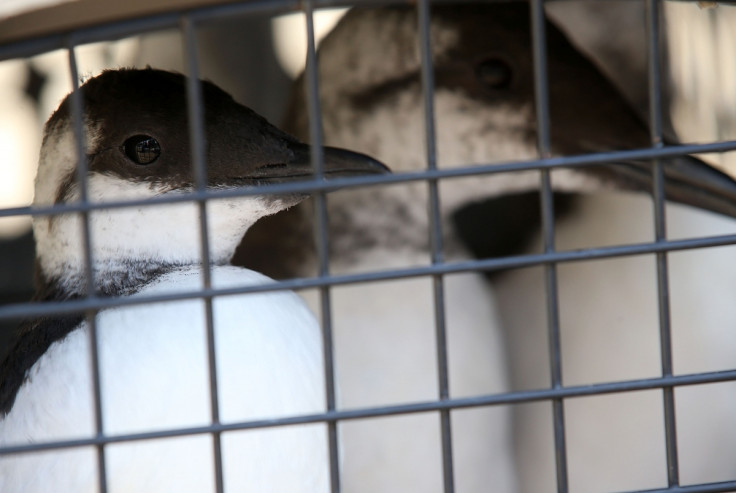US: Scientists launch investigation after 8,000 dead seabirds found washed up in Alaska

Scientists in the US state of Alaska have launched an investigation after 8,000 seabirds were found washed up on a beach. The remains of the common murres were discovered on a mile-long stretch of beach at Whittier, on Prince William Sound, around 60 miles south (90km) of the state capital Anchorage.
Experts who examined the dead birds discovered that they were dangerously underweight and emaciated. And although the mass winter "die-offs" were nothing new in scientific circles US Geological Survey researcher John Piatt, said the sheer numbers were unprecedented.
The north-western state of Alaska is thought to be home to around 2.8 million breeding common murres of the world population of around 20 million. Common murres, which weigh around one kilogram, need to eat around half of their body weight per day, and are common in the north Pacific and in Europe.
Scientists believe that rising ocean temperatures may have pushed the fish deeper into the ocean, perhaps beyond the murres' diving range of 600 feet (200m). Laboratory tests found no parasites or disease in the carcasses of the dead birds.
Kathy Kuletz, a US Fish and Wildlife Service (USFWS) biologist, said warming ocean surface temperatures may have disturbed the fish they eat. "The length of time we've been seeing dead birds, and the geographic scope, is much greater than before in other die-off events. We're looking at many times that. So possibly a good chunk of the population," she told CBS.
Murres feed on mostly small fish, by using their wings to propel them underwater. During the winter, they usually spend most of their time at sea and in 2008 an agency study found mass deaths took place when surface temperatures increased by just a few degrees.
David Irons, a former biologist for the USFWS, found the birds in Whittier. He told the Alaska Dispatch News: "It's a regular part of their life history, but I would say this is the most extreme I have ever seen or heard of. These birds are wicked skinny - no fat reserves. It's an awful way to die, and they're dying en masse."
© Copyright IBTimes 2024. All rights reserved.






